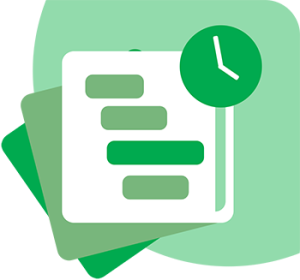Buying or renting a house? The pros and cons

Whether you rent or buy a home, both options have their pros and cons. It is good to make an informed choice in this. Finally, your housing costs are a large part of your monthly expenses. Here are the pros and cons of renting or buying.
Housing market woes
Note: We are aware of the dire situation in the housing market right now in the Netherlands. Unable to buy a house or forced to live with your parents because there is a housing shortage and many homes are unaffordable for a single starter – rent and buy. In this article, we want to list some of the pros and cons of both options so that – if you are faced with the choice of home ownership – you can make an informed decision.
Advantages and disadvantages of renting
Surely the most obvious advantage of renting is that you are not tied to anything. A lease can often be terminated at short notice, so you always have flexibility. You also don’t have to do any major maintenance on your home. A repair to a stove or oven is the responsibility of the tenant. In addition, you may be eligible for rent subsidies.
Then on to the disadvantages of renting. First, your rent can go up every year. Your lease specifies a maximum percentage of rent increase. Yet this can increase your rent by a few tens per month per year. Second, if the property becomes worth more you don’t notice. Your wealth does not increase, nor does a remodel ultimately benefit yourself. So when renting, you don’t build your own pot, which you do when buying and paying off a mortgage. So the big advantage of renting is flexibility and cost savings on major maintenance.
Renting can also be a choice if you have a new partner and want to try if living together is pleasant first, before buying a house.
Advantages and disadvantages of buying
When you buy a home, you are in complete control. The house is your property when you have paid off the mortgage. Until then, you can often deduct mortgage interest from your taxes so you pay less tax. The rules do change, so pay close attention! You can remodel the house the way you want and, for example, finally realize that dream kitchen.
In addition, with an owner-occupied home, you have to factor in transfer tax when buying (again, there are ifs and buts to this, see here) notary fees and any fees for a mortgage broker.
At the same time, all maintenance costs of the home are your responsibility. You also pay extra levies and taxes when you buy a home. There are also plans to tax an owner-occupied home in Box 3, which also entails more costs. And should your home depreciate in value, you may be left with residual debt after the sale.
Still building wealth?
Whether it’s best to buy or rent a home depends entirely on what you want for yourself. Sometimes renting is the only option, but should you qualify for a home for sale, this is certainly worth considering. Do you rent a house and still want to benefit from brick value appreciation just like buyers? Then you can always invest in real estate, through funds or stocks, for example. Read how to do that here.
You can also build wealth as a tenant in other ways. Where buyers make mandatory monthly repayments on their debt – thus building potential value and wealth – as a tenant, for example, you can invest in widely diversified funds to build wealth as well.





